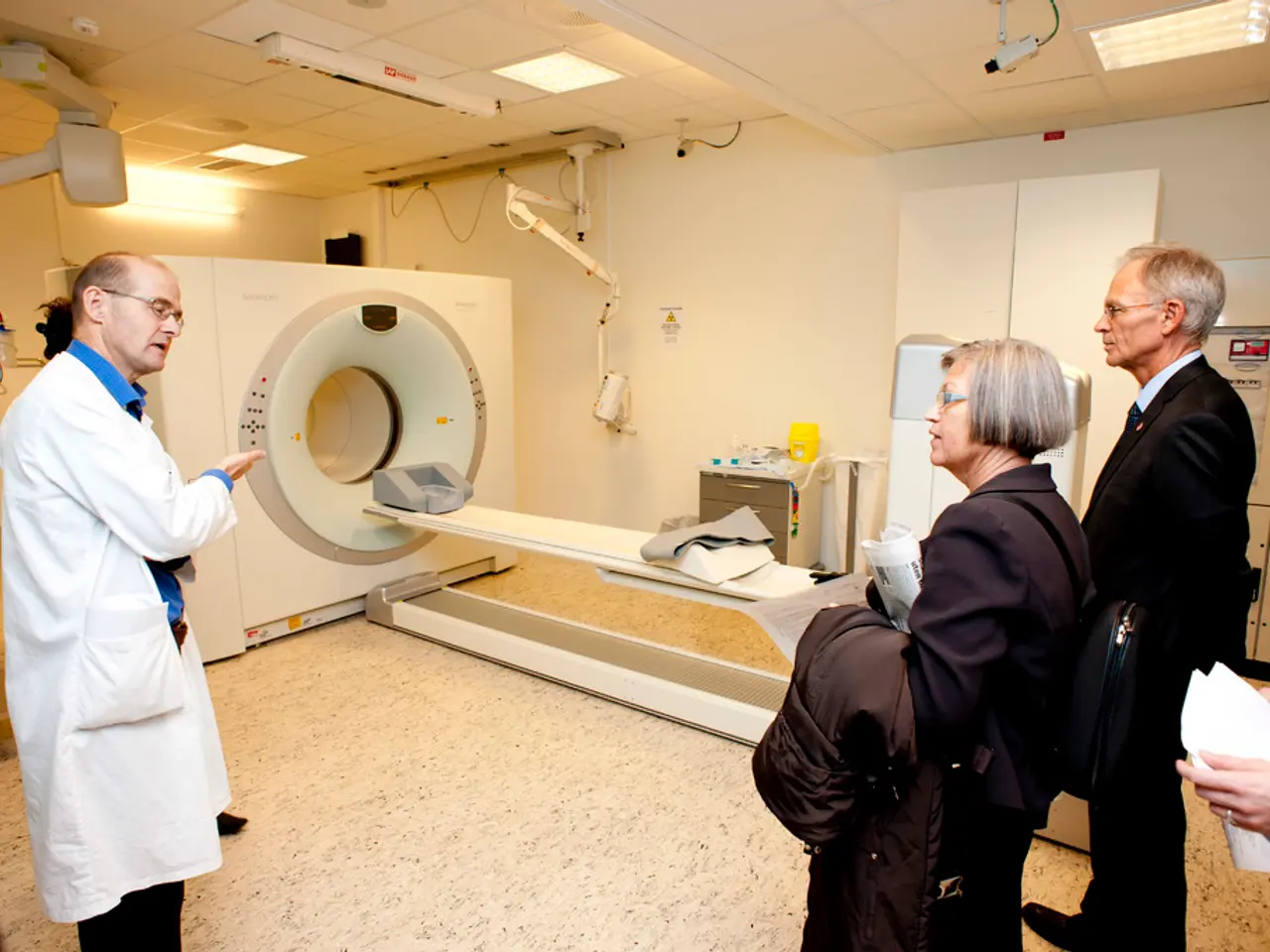Medicare Coverage for PET Scans: Available Services, Choices, and Expenses
Medicare, a federal health insurance program, provides coverage for various medical services, including PET scans. This comprehensive insurance scheme is divided into several parts, including Part A, Part B, Part D, Part C (Medicare Advantage), and Medigap.
Part A, Part B, and PET Scans
Medicare Part A may provide coverage for PET scans if a person is temporarily staying in a nursing facility or during a hospital stay. In such cases, the PET scan cost is bundled into your hospital coverage, reducing separate out-of-pocket expenses for the scan itself. However, you are responsible for the Part A deductible, which is $1,676 in 2025.
On the other hand, Medicare Part B covers outpatient services and may cover PET scans as diagnostic, nonlaboratory tests. Medicare Part B typically pays 80% of the approved cost after you meet the Part B deductible ($257 in 2025), so you would pay the remaining 20% coinsurance out-of-pocket.
Medicare Advantage and Medigap
Coverage for PET scans under Medicare Advantage (Part C) plans depends on the specific Medicare Advantage plan. These plans have varying deductibles, copays, coinsurance, and prior authorization requirements. You must check with your particular plan for details on PET scan out-of-pocket costs and coverage rules.
Medigap (Medicare Supplement Insurance), if you have it with Original Medicare, may cover some or all of your out-of-pocket costs for PET scans under Part A and Part B, including deductibles and coinsurance. The exact coverage depends on the specific Medigap plan you choose. Please note that you cannot have Medigap if you have a Medicare Advantage plan.
Important Points to Remember
- Medicare recently lifted restrictions on coverage of amyloid PET scans for Alzheimer’s, allowing broader coverage beyond previous limits.
- PET scans must be medically necessary and ordered by a physician to be covered.
- PET scans can detect and inform treatment for cancer, brain disorders, injuries, and other central nervous system conditions, and heart problems.
- Out-of-pocket costs for PET scans under Medicare Advantage vary by insurer.
In summary, inpatient PET scans are covered under Part A with deductible responsibility; outpatient PET scans fall under Part B, where you pay a deductible plus 20% coinsurance; Medicare Advantage plans vary; and Medigap can help cover out-of-pocket costs for Original Medicare. It's essential to understand your specific plan's coverage rules to make informed decisions about your healthcare.
Health organizations should be aware of the coverage options for PET scans under Medicare, a federal health insurance program that provides benefits for various medical services. Medicare Part A may provide coverage for PET scans during a hospital stay or in a nursing facility, with the patient responsible for the Part A deductible. Medicare Part B covers outpatient services and may cover PET scans as diagnostic tests, with the patient paying 20% of the approved cost after meeting the Part B deductible. Coverage for PET scans under Medicare Advantage (Part C) plans varies, and it is essential to check with your specific plan for details on out-of-pocket costs and coverage rules. Medigap (Medicare Supplement Insurance) may cover some or all of the out-of-pocket costs for PET scans under Part A and Part B, but it cannot be combined with a Medicare Advantage plan. PET scans can detect and inform treatment for medical-conditions like cancer, heart problems, brain disorders, injuries, and other central nervous system conditions, making them crucial in the field of science and medical-healthcare. Understanding your specific plan's coverage rules is vital for making informed decisions about your health-and-wellness under Medicare.




